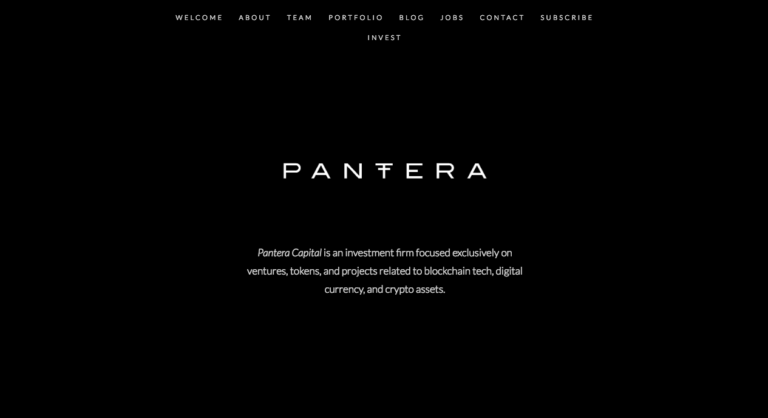On Thursday (13 February 2018), Pantera Capital, one of the leading investment firms focused on blockchain technology and cryptoassets, said that the vast majority of the crypto projects it had invested in should not be affected by the U.S. SEC’s negative stance towards Initial Coin Offerings (ICOs).
Pantera Capital, which was founded in 2013 by Dan Morehead (who is also the current CEO), was one of the first U.S. investments to get into Bitcoin, and today is “one of the largest institutional owners of cryptocurrencies.”
Its portfolio consists of two types of investments:
- Venture Investments (examples: Abra, Bakkt, Basis, BitPesa, Bitstamp, Brave, Circle, Civic, Ripple, Xapo, and Zcash)
- ICO Fund Investments (examples: 0x Protocol, Enigma, Filecoin, FunFair, and ICON)
According to a report published in Bloomberg on Thursday, Pantera says in its most recent newsletter that “about 25 percent of the blockchain and digital-currency projects that its ICO fund invested in could be found in violation of U.S. securities laws and may have to refund money to their backers.”
Apparently, in the “Market Update” section of the newsletter, Joey Krug, who is a Co-Chief Investment Officer at Pantera Capital, issues the following warning:
“While we believe the vast majority of the projects in our portfolio should not be affected, approximately 25% of our fund’s capital is invested in projects with liquid tokens that sold to U.S. investors without using Regulation D or Regulation S. If any of these projects are deemed to be securities, the SEC’s position could adversely affect them. Of these projects, about a third (approximately 10% of the portfolio) are live and functional and, while they could technically continue without further development, ending development would hinder their progress.”
What Krug is referring to the press release by the U.S. SEC on 16 November 2018, which announced that the SEC had “settled charges against two companies that sold digital tokens in initial coin offerings (ICOs)”, that these were the “first cases imposing civil penalties solely for ICO securities offering registration violations”, and that both of these companies had “agreed to return funds to harmed investors, register the tokens as securities, file periodic reports with the Commission, and pay penalties.”
That SEC press release also contained the following quote by Stephanie Avakian, Co-Director of the SEC’s Enforcement Division:
“We have made it clear that companies that issue securities through ICOs are required to comply with existing statutes and rules governing the registration of securities. These cases tell those who are considering taking similar actions that we continue to be on the lookout for violations of the federal securities laws with respect to digital assets.”
Yesterday, according to an article in Coindesk, Valerie A. Szczepanik, who was named as the SEC’s Senior Advisor for Digital Assets and Innovation on 4 June 2018, said that some crypto startups “may be allowed to bypass U.S. securities registration requirements by obtaining so-called no-action letters”. However, such letters are quite rare, and she explained that as a general rule of thumb, token issuers had three choices if they wanted to conduct an ICO:
- register as a securities offering
- apply for an exemption
- make sure that the token was not a security (and it would be “a rare set of circumstances” where an ICO token will not be considered a security)
Featured Image Courtesy of Pantera Capital









